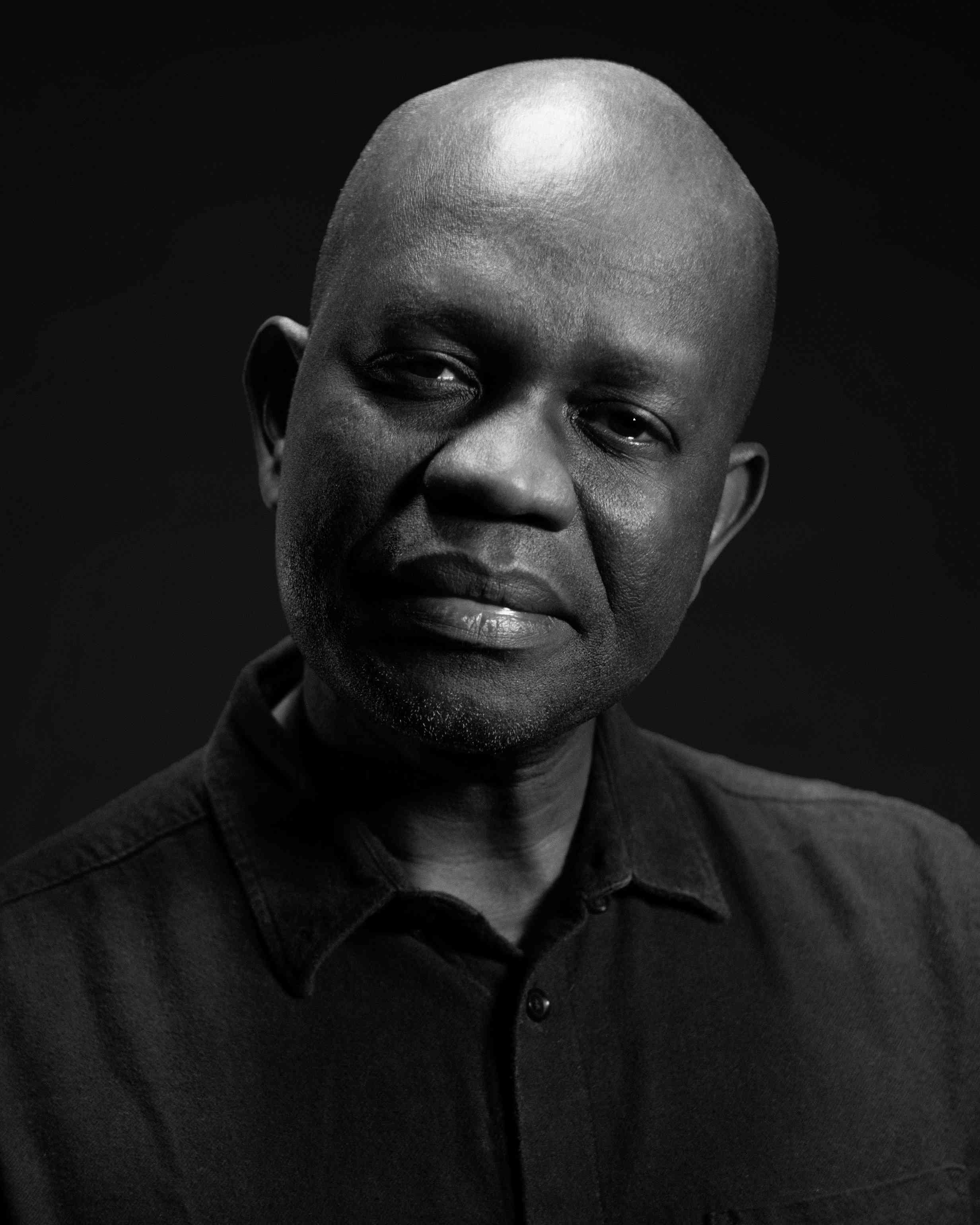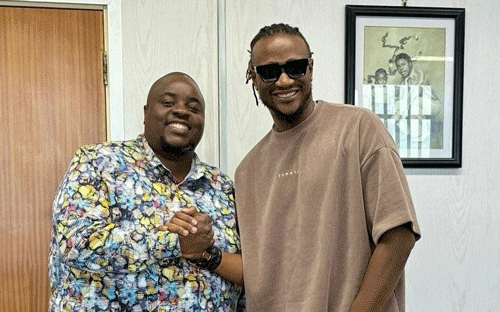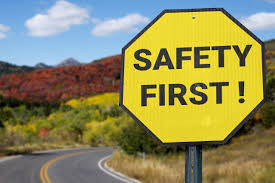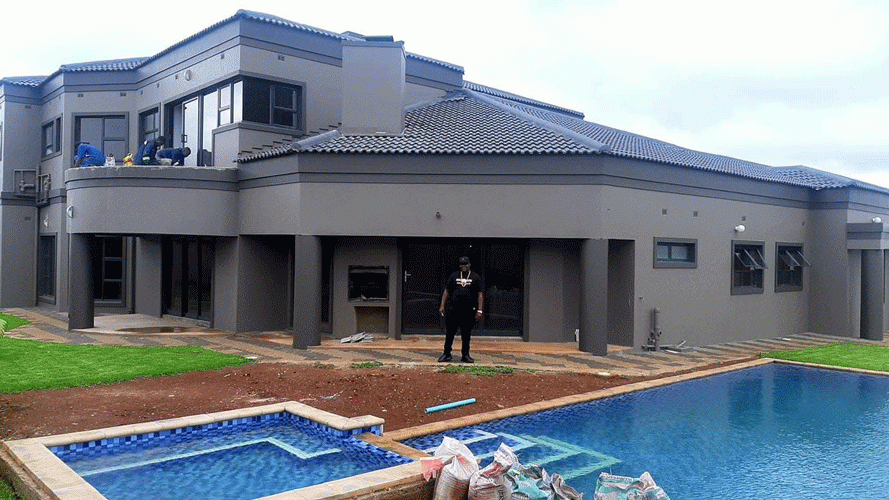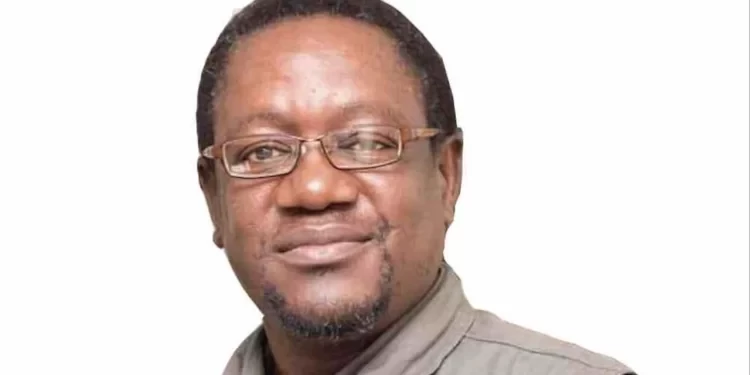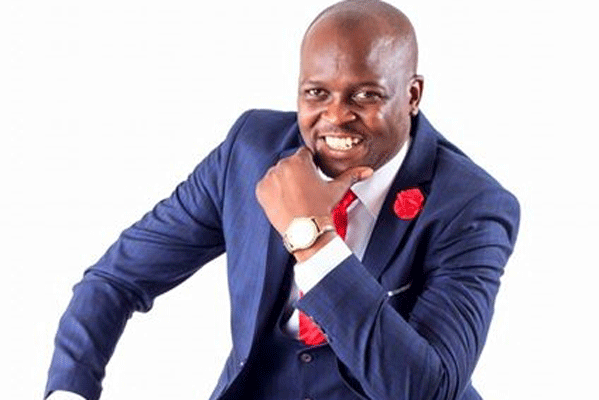
Local airwaves have created names in the same manner they have destroyed them.
the style interview By Kennedy Nyavaya

Like fortune, broadcasting seems to favour the brave and in recent history, the apparently most valiant personality both on television and radio, McDonald Gurura can attest to it.
His face has become a permanent feature on the national broadcaster’s morning bulletin where he anchors while those who listen to Sport FM are now accustomed to his voice.
Currently a Higher Life Foundation mentor, Gurura was administrator for a brand and image visibility company before he went for auditions that propelled him to fame half a decade ago.
When he speaks about his profession, it is easy to sense the satisfaction, love and passion for what he does.
The Standard Style reporter Kennedy Nyavaya (KN) got in touch with Gurura (MG) to find out how he manages his tight schedule, private life and a bit of his past. Below are excerpts from the interview.
KN: You are no stranger to most Zimbabweans who watch local television and listen to radio, how has your broadcasting journey been so far?
- Chamisa under fire over US$120K donation
- Mavhunga puts DeMbare into Chibuku quarterfinals
- Pension funds bet on Cabora Bassa oilfields
- Councils defy govt fire tender directive
Keep Reading
MG: I am very excited about the work I have been doing on TV. That has been my passion for a very long time because I love communicating and TV gives you an opportunity to communicate.
Being the main anchor of a national bulletin in Zimbabwe has been amazing for me as it just challenged me to grow and it has opened up doors in terms of interacting with influencers in society asking them questions that are pertinent and that people want answers to.
KN: How did you break into mainstream media and please tell me more about the transition from radio to TV; what were the challenges?
MG: Foundationally, I would say it’s the grace of God working where opportunities come and I am one to never shy away from opportunities. This is what happened with radio a couple of years ago when I started.
Breaking from radio to TV, there was an audition called for news presenters and I took it as my opportunity and chance, jumped at it and I was among the few who were selected and it was a great honour in my life. That was round about three years ago.
The transition that you are asking about was really a bit of a challenge because you are using radio and it is just your voice going out but people are not seeing you and even if you make mistakes, they are not as visible as they are on TV, especially on live TV.
So it is just that consciousness of being on a different platform and the stage fright associated with it. But I guess it’s also to do with continuously learning the principles of journalism.
Also learning from other greats that have walked the walk ahead of me like Piers Morgan and Larry King, continuously exposing myself to their work has helped me and never stopping to learn.
KN: How do you strike a balance and manage your time? I understand every day you are on TV and on radio, don’t you sometimes get overwhelmed by the work?
MG: For me, I think it’s that aspect that I love my job, I love broadcasting and that is what gives me the drive to do all those things. People often ask me how I manage and if I even have a private life.
Well, I try but I guess I am at that point in my life where I am primarily focused on my passion and on my purpose, which I believe is significantly tuned into radio and TV.
KN: When you are not on air, what else do you do?
MG: I am master of ceremonies for different occasions which include national events as well as private ones like parties and corporate events, that is the other aspect of the work that I do in my personal capacity.
I do mentorship programmes with a group that I work with called G2G (generation to generation).
This is a group about impacting and imparting to the next generation tools and skills that we didn’t necessarily have when we were growing up. They get the opportunity to learn from some of the mistakes that we made, successes we made to make them more successful.
KN: Going forward, are you at a time where you can start your own company or you feel comfortable working in a stable?
MG: Starting a media company is huge, you have to understand the dynamics around it, of which that is not my primary passion.
My primary passion is to speak so I feel I am at the epicentre of my purpose, but I actually feel as if I need to grow some more, you know, have more stature.
I would love one day to facilitate talks on a national level like what we see in different countries and where we have influences in all aspects of life in my own personal capacity.
KN: In our media generally, do you think there are places we need to improve to perhaps match international standards?
MG: Definitely, we must grow. I think one of the things that producers/presenters from other nations have managed to do so well is to multi-format their arts.
You don’t just find them on TV or radio alone but they are on different spaces; you have town hall meetings and they can effect progress in different areas.
Really becoming the voice of the people to the authorities and I think there is really space for media personalities to be in critical spaces where there is that influence and passion.
Media should not shy away and have some false sense of humility and shy away from the job, I think it is actually a responsibility for us in the industry to be where the people are and to consistently disseminate and engage to bring practical benefit.
KN: You sound so passionate about issues of engaging the society. Do you have other less serious shows?
MG: I am excited to tell you that there is something in the pipeline and it’s a show whose title we are still working on, but it’s a gentleman’s programme where the setting is a pub and we talk about issues that men talk about.
It’s going to be fun and we are going to cut across the board to talk about different issues.
KN: People constantly see you on TV and hear your voice on radio. How do you manage being in public spaces with so many people knowing you?
MG: I am normal and being on radio and TV is a job which I love and entails me being in the public limelight, but I love relaxing.
When I am not at work, I am with my friends relaxing, we just go out, do road trips to secluded places.
But, obviously there is a level of responsibility that I still have even in those circles, although I am not a perfect man I try to keep the integrity of my brand and persona so that when you have something to say, people will listen; there is that balance that has to be struck.
KN: You are like the ironman of local industry and perhaps in the future some will look at you and aspire to do better. What is your secret?
MG: What drives me to work 16 or 18 hours each day is the passion; my whole family is full of bankers and at one point I went that route but I wasn’t enjoying it.
You got to do the hours. You cannot expect someone to do press-ups for you and you get fit, you got to do your own press-ups.
KN: With such a tight schedule, have you ever felt like quitting?
MG: It does get hard because the work we put in is hectic and it sort of cuts you from a social life.
It feels lonely at times because few people can relate but it’s the passion and joy of the work that keeps me going back time and again.
KN: Thank you for your time.
MG: It is my pleasure.

